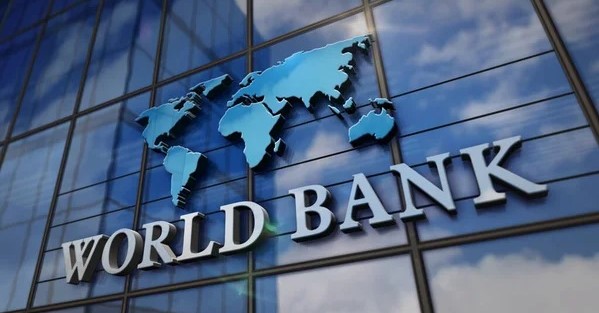By Paul Onehi
The Federal Government faces losing $4 million in World Bank funding due to non-compliance with auditing standards related to revenue reforms at the Federal Inland Revenue Service (FIRS) and Nigeria Customs Service (NCS).
The $4 million at risk is part of a larger $103 million Fiscal Governance and Institutions Project, a public financial management initiative funded by the World Bank’s International Development Association (IDA).
According to the World Bank’s, the restructuring paper dated June 2025 revealed that the revenue assurance audit for FIRS and Customs, covering 2018-2021, was deemed unsatisfactory due to non-compliance with international auditing standards in the submitted reports.
$4 million allocation for a revenue assurance audit of key revenue-generating agencies, including FIRS and Nigeria Customs Service, covering FY 2018-2021, was deemed unmet due to non-compliance with international auditing standards.
The Independent Verification Agent determined that the Office of the Auditor-General of the Federation did not meet the required standards, as the submitted audit reports for FIRS and NCS (2018-2021) failed to comply with international auditing standards.
The Abuja Post reports that the failed audit was one of 10 performance-based conditions the government couldn’t deliver before the June 30, 2025 deadline.
Consequently, the Federal Ministry of Finance formally requested the cancellation of $10.4 million in project funds.
The Federal Ministry of Finance (FMF) has requested the cancellation of $10.4 million in project funds, comprising $0.9 million in unused technical assistance funds and $9.5 million allocated to unmet performance-based conditions that won’t be achieved by the project’s June 30, 2025 deadline.
The breakdown further shows that $ 4.5 million was tied to the uncompleted Revenue Assurance and Billing System, while $ 1 million was allocated to the development of a National Budget Portal.
According to the document, the Budget Office of the Federation failed to provide evidence of achievement for the National Budget Portal, while $0.9 million in technical assistance funding remained uncommitted and has been cancelled.
The document further reads, “The proposed change is to cancel the $10.4 million, constituting $9.5 million for PBCs that will not be achieved and verified by the closing date, and $0.9 million uncommitted funds from the technical assistance component.”
The Fiscal Governance and Institutions Project initially had a funding envelope of $125 million. However, in June 2024, $22 million was dropped during a restructuring, reducing the project funding to $103 million. With the latest cancellation of $10.4 million, the total funding for the project has now been reduced to $92.6 million.
The Fiscal Governance and Institutions Project was approved in June 2018 and took effect in May 2019. Its primary objective was to enhance public finance credibility and national statistics through reforms in revenue administration, budget transparency, and data systems.
Although the government missed key targets, the project recorded progress in other areas, including revenue performance. According to the World Bank, non-oil revenue was 153 per cent of the budgeted target in 2024, up from a baseline of 64.9 per cent in 2018.
The World Bank attributed the increase in revenue to key reforms, including the unification of Nigeria’s exchange rate, improved tax administration through the TaxProMax system, and automation of revenue remittances from ministries and agencies.
Other areas of progress include the launch of the Electronic Register of Beneficial Owners by the Corporate Affairs Commission, which now covers about 40 per cent of registered businesses, and the publication of a National Asset Registry and financial reports by the Ministry of Finance Incorporated.
The final disbursement for the project is expected to be $96.04 million, which is approximately 93% of the $103 million total after cancellations.
The World Bank projects that poverty in Nigeria will increase by 3.6 percentage points by 2027, citing structural issues related to resource dependence and national fragility as major hindrances to progress. This prediction is based on the Bank’s Africa’s Pulse report, which highlights that resource-rich and fragile countries like Nigeria will experience exacerbating poverty situations, unlike non-resource-rich countries that are expected to see faster poverty reduction.
On the heels of these concerns, the $4 million loss, some analysts say, is a huge indictment of the much-touted economic reforms of the President Bola Tinubu-led Federal Government, with growing concerns over rising debts and burdensome taxes on Nigerians.
Development economist Celestine Okeke expressed concern, stating that Nigeria should be maximizing goodwill and funding for developmental projects to boost the economy, making the loss of concessionary funds particularly untimely.









